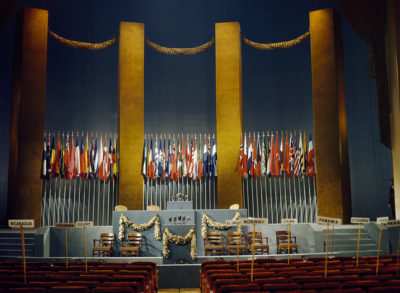Children have no place in the British army
The Guardian
Mark Bostridge writes: Britain is the only country in Europe to recruit 16-year-olds into its armed forces. The cynical targeting of underprivileged youngsters must end
On the evening of 22 December 1915, a young British subaltern called Roland Leighton was mortally wounded as he went out ahead of his platoon to inspect the barbed wire in front of trenches at Hébuterne on the Western Front.
It was a moonlit night, with Germans only 100 yards away, and Leighton had no sooner reached the gap in the hedge on the concealed path leading to No Man’s Land than he was shot in the stomach by a sniper. He was given a huge dose of morphine and taken to the village of Louvencourt, 10 miles away, where he was operated on the next morning. His chances of survival were slim, and at 11pm he died peacefully. He was 20 years old.
A century on, Leighton is still remembered as the glittering public-school hero of Testament of Youth, the memoir written by the woman he might have married had he survived the war, Vera Brittain. In the book’s recent feature film adaptation, Leighton was portrayed by Kit Harington of Game of Thrones fame.
In 1915 he went to the front imbued with the militaristic values embodied from an early age in his education at Uppingham School and in the school’s officers’ training corps: ideas about self-sacrifice, of the necessity of dying for one’s country, and of war as an exciting, even romantic spectacle. No wonder his path to disillusionment was swifter and more all-encompassing than most.
In 2015 the military ethos promoted in schools by the Ministry of Defence and the armed forces is both more widespread and more insidious. However, there can be little doubt that the thousands of annual visits to secondary schools and colleges made by the armed forces, together with the estimated £26m that the MoD spends each year on combined cadet force units, are designed to act as an enticement to a career in the services. As the learning resource package, sent in 2014 to every school in the UK by the Department for Education, noted, it is “always challenging and fun”.
The MoD is anxious to avoid accusations that it seeks to glamorise war, and is wary of the perceived link between school visits and active propagandising. A draft MoD report entitled Youth Engagement Review, obtained under a freedom of information request in 2012, made the admission that, “All the services are particularly keen not to overtly link cadets and recruiting and this must continue in the public eye.”
Britain remains the only country in Europe to recruit 16-year-olds into its armed forces. This is despite recommendations from the United Nations committee on the rights of the child and the parliamentary joint committee that the minimum age for recruitment be raised to 18. It also goes against evidence from ForcesWatch, a network that scrutinises the ethical basis of the armed forces’ recruitment of young people, that it costs twice as much to train a 16-year-old as it does an adult because of the longer training and higher drop-out rate. It is a curious anomaly that 16-year-olds cannot drink alcohol, vote, or drive a car – but they can join the army.
Meanwhile, as the armed forces continue with their policy of targeting their school visits disproportionately to schools in deprived areas and children from low-income families, the Department of Education ignores the UN’s recommendations that some form of peace education should be part of the curriculum in UK state schools, and supports initiatives encouraging a military ethos. “Every child can benefit from the values of a military ethos,” said Michael Gove, then education secretary, in 2012. The £45m spent on projects from the cadet expansion programme to the Troops to Teachers scheme, together with hopes for military sponsorship of academies and free schools, shows that the department is prepared to put its money where its mouth is.
But is it appropriate for a 21st-century liberal democracy to groom its children in this way? In a rare unguarded moment in 2007, the head of the army’s recruitment strategy, Colonel David Allfrey, spoke about the “new model” in raising awareness. “It starts with a seven-year-old boy seeing a parachutist at an air show and thinking, ‘That looks great.’ From then the army is trying to build interest by drip, drip, drip.” It is a chilling testimony to the militarisation of our youth.
See more: legislation & policy, recruitment age, war commemoration, ForcesWatch










